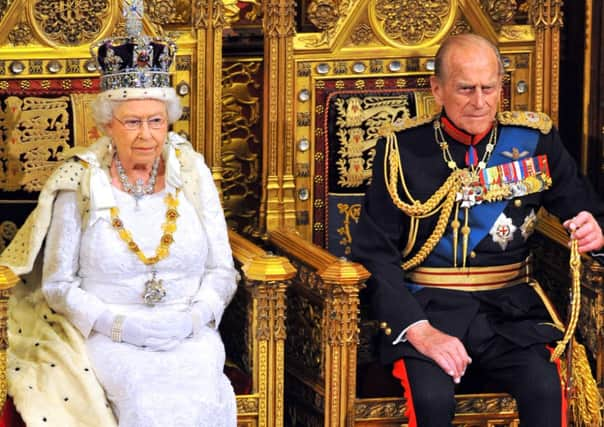Leaders: Recession reaction will decide election


This was the final programme of a government on its final lap, with the finishing tape of next year’s general election very much in its sights.
It was not, perhaps, the “zombie government” that Labour MPs claimed in numerous TV interviews yesterday afternoon, but neither was it the bold and robust government that ministers crowed about. We in Scotland are so caught up in the momentousness of our independence referendum it is sometimes easy to forget about the Westminster political cycle that will see the current coalition government come to the end of its term of office next spring.
Advertisement
Hide AdAdvertisement
Hide AdWe are perhaps understandably guilty of seeing the general election campaigns primarily in terms of how they impact on the 18 September vote. Will an expectation of another Tory-led administration swing the independence debate towards a Yes? Will the pro-UK parties coalesce around a common position on more powers before the general election vote on 7 May if it’s a No vote this year? If the referendum is a Yes, could a Labour government elected in 2015 be turfed out of office in 2016 once it loses the Scottish MPs whose jobs would cease to exist?
These are fascinating scenarios. But occasionally we should step aside from our constitutional preoccupations and examine next year’s general election on its own terms. What has been the defining feature of this administration? And what will history’s judgment be upon it?
The first question is not hard to answer. Uniquely among recent British governments, this administration has been defined by one challenge alone: dragging the country out of the slough of recession. David Cameron’s government will survive or fall on how well people think it has handled this defining issue.
Which brings us, perhaps inevitably, back to the independence referendum, which will be upon us eight months before the general election.
In many ways, the role the recession will play in the general election will be similar to the role it plays in the referendum.
Will normal voters start to feel the lifting of the economic black cloud by September? And if they do, what conclusion will they draw?
Will there be added confidence for change? Will the people of Scotland adduce that the UK government came through and did a tough job well? Or will they conclude the UK government’s conduct – in getting us into this mess in the first place, and in the sometimes brutal way they dragged us out of it – has demonstrated the UK should be no more? There is no denying it: our votes on 18 September and 7 May are inextricably linked.
Never mind the Balkans
CARL Bildt is a man who knows something about “Balkanisation”. After all, he was the European Union’s envoy in the thick of the diplomatic machinations that followed the break-up of the former Yugoslavia. As such he was a witness to the human cost of the bitter and brutal fracturing of the former Communist country into separate states whose deep antagonism ultimately manifested itself in ethnic cleansing and the atrocity of Srebrenica.
Advertisement
Hide AdAdvertisement
Hide AdSo should we be alarmed when Mr Bildt, now Sweden’s foreign minister, is predicting the “Balkanisation of Britain” after a Yes vote in Scotland’s independence referendum?
It is arrant nonsense that there is a chance that anything near similar will happen here in the event of a vote for independence.
And it is completely unreasonable for Mr Bildt to make this prediction of the worst of all possible worlds, drawing a comparison with some of the most violent and divisive geopolitical events in recent memory.
Where are the facts that form the justification for this doom-laden prediction? Where are street gangs and militia on the streets of Scotland that could give rise to such grim fears?
It is true that the term “Balkanisation” derives not from the events in the former Yugoslavia in the 1990s, but from the break-up of the Ottoman Empire in the region. Mr Bildt’s antecedents, however, suggest he should be aware in what context they would be seen.
The referendum can do without such incendiary language. Clearly Mr Bildt has either a poor grasp of the English language or an even poorer grasp of the people of Scotland and the UK. Or both.